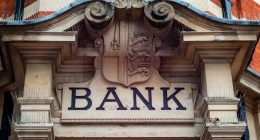
In 2018, the Bank of England investigated whether a big rise in interest rates would trigger a cascade of forced selling by bond investors, destabilizing the financial system. The answer was no, even if long-term rates rose a full percentage point in a week, which had never happened in records going back to 1990.
In the days surrounding the British government’s tax-cut announcement on Sept. 23, yields on British government bonds, called gilts, gyrated as much as 1.27 points in a single day as pension funds dumped bonds and closed out bond-linked derivatives positions to meet margin calls. The Bank of England was forced to step in and buy bonds to stem the selloff.








